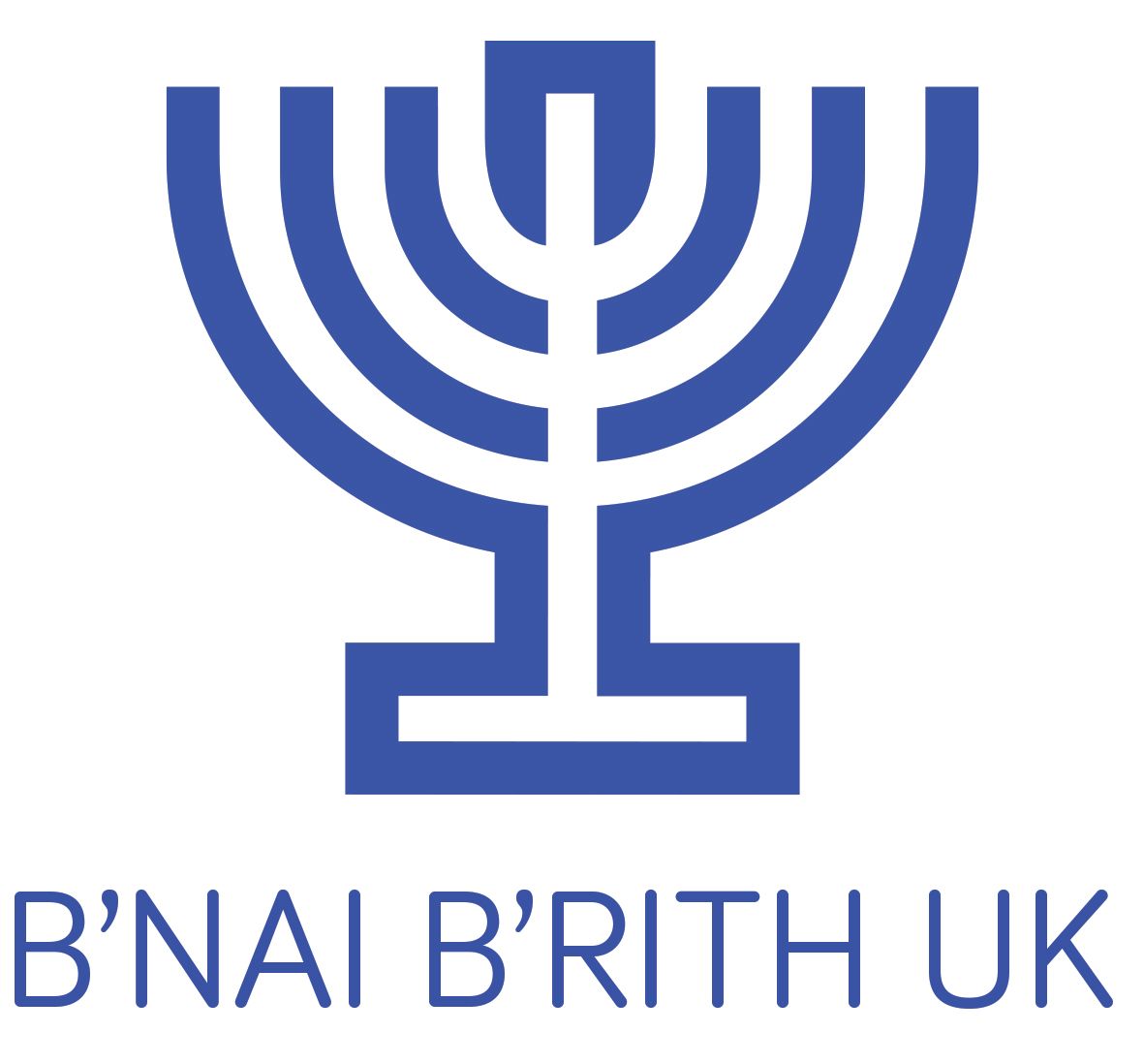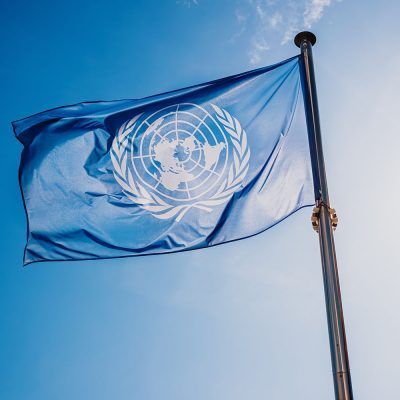Our Advocacy Unit -
The Bureau
B’nai B’rith UK Bureau of International Affairs
The Bureau of International Affairs was founded by B’nai B’rith UK in March 1998 as the UK arm of B’nai B’rith International’s Centre for Human Rights and Public Policy, based in Washington DC.
The mission of the Bureau is:
- To serve and protect the interests, welfare and security of Jews internationally
- To support the State of Israel
- To uphold the human rights of minority peoples globally
The Bureau was set up to address the need for a pro-active, strategic European organisation to engage with the diplomatic community on behalf of the Jewish people. By focusing on decision-makers and influencers, its objective is to be a positive influence on policy developments affecting the State of Israel and Jewish and minority interests generally.
The Need for the Bureau
There is clear and increasing evidence of antisemitism around the world. This prejudice takes many forms, including far right white supremacism, jihadist hatred, as well as leftist attacks on the’ Jewish lobby’ and Zionism. Often, this involves recurring themes and tropes of Jew hatred which have been regurgitated to reflect modern events and crises. Anti-Israel bias is manifested in attempts to isolate Israel politically at the United Nations (UN) and within the Boycott, Divestment and Sanctions (BDS) movement. This prejudice is in many cases born out of a lack of understanding of the issues involved and a lack of awareness of what is really going on in the Middle East. International diplomacy is of vital importance in establishing the rights of the Jewish people and the preservation of the State of Israel. London is a pivotal centre for international diplomacy and is a strategic centre in relations between the USA, Europe and the Middle East.
How the Bureau Operates
The Bureau maintains regular contacts with London-based diplomatic missions, as well as diplomats in Paris and Geneva, leading political figures in the UK and institutions such as the British Foreign and Commonwealth Office (FCDO). It is in close contact with the Embassy of Israel, enabling it to maintain a regular dialogue. We also have contact with NGOs such as Oxfam and Christian Aid to discuss their position on Israel. Through these meetings, we promote greater security for Jewish communities world-wide and help cultivate support for Israel’s unique circumstances and for its aspirations for peace and security.

BBUK BIA - Jeremy Havardi at the US Embassy

The Bureau’s Progress and Achievements
The Bureau has established an enviable credibility within the UK and foreign diplomatic community in London, proactively providing objective information and correcting misconceptions on matters affecting Israel and the wider Jewish community.
The value of our activities has been commended both by community leaders and the Embassy of Israel.
The Bureau’s Current Agenda
The Bureau works closely with B’nai B’rith in Washington DC, which maintains strong links with the Senate and important members of Congress on similar issues.
We are dealing with a number of international issues affecting Israel and the Jewish people, particularly with regard to the UN and the EU. These include the situation in Gaza, the Middle East peace process, the Iranian nuclear threat, and bias at the UN Human Rights Council in Geneva and the UN in New York. Discussions are held with ambassadors or senior diplomats and the Bureau’s concerns are fed back the country’s respective Foreign Ministry.
Other issues include:
- The ongoing ban on shechita (Jewish religious slaughter) in a number of countries.
- Settlements and land swaps and the standpoint of the EU towards Israel.
- The issue of rising antisemitism, including whether governments recognise the problem and what actions they are taking to control and eradicate it.
- The need for Holocaust restitution in eastern European nations.
- The widespread problem of rejectionism and incitement from within the Palestinian Authority, a body that is funded by the West.
- How the UN Relief and Works Agency (UNRWA) undermines any chance for peace and co-existence in the Middle East.
- How BDS undermines the chances for peace and co-existence by promoting a destructive anti-Israel and antisemitic agenda.
- The problems faced by religious minorities in the Middle East, including ethnic cleansing, violence, deprivation of education, and incitement.

BBUK BIA - Jeremy Havardi Meeting with Jordan UNHRC 2019

The Bureau’s Research
The continued strength of the Bureau is largely due to the excellence of our research team, which is the reason that we are welcomed into many embassies and the FCO. It has published papers, including one on the status of the West Bank in international law, another on anti-Israel NGOS and another on the role of UNRWA in undermining the chances of peace and reconciliation between Israelis and Palestinians. The Bureau published a book, Israel and the Middle East: A Fresh Perspective, which is available to Friends of the Bureau.
In 2018, a second book, Civilisation in Crisis, explained the common problems faced by many religious minorities in the Middle East today. In 2022, its third book, Antisemitism and the Anti-Israel Movement, was published which examined how antisemitic tropes and double standards had come to influence today’s anti-Israel movement.
These books are available free to members by emailing lbia@bnaibrithuk.org.
Support and Encourage the Bureau
We would like you to become a full member of B’nai B’rith UK, but if you would prefer to be associated with us as a friend, we would be pleased to have your support. Friends of the B’nai B’rith UK Bureau of International Affairs, unlike members, do not have to be members of the Jewish faith but are people who are sympathetic to our aims.

Dr Jeremy Havardi
Director of the BBUK Bureau of International Affairs
Dr Havardi’s Message
As director of the Bureau, I will continue to promote the interests and welfare of Jewry worldwide and tackle the scourge of antisemitism wherever it arises. I will also raise concerns about how Israel is perceived and talked about, requesting fairness, accuracy and balance in place of more misguided opinion. Concerns about human rights will be raised and links established with representatives of other minority groups. I will also be writing and distributing research papers to ensure that we are well informed in all of our meetings. Finally, as a journalist, I will do all I can to promote our work, both in the national and Jewish press. These things will help raise the reputation of the Bureau within London’s diplomatic community.
About Dr Jeremy Havardi
Dr Jeremy Havardi is a journalist, historian and long-standing political activist. He was educated at Haberdashers Aske’s School in Elstree before studying at Bristol University and King’s College, London. He has degrees in philosophy, history and law, all of which strongly inform his writing.
He has written five books, mainly on modem history, including studies on Churchill and British war films. His latest volume offers a critical, evidence-based analysis of the diplomatic assault on Israel within the western world. In 2011, he was commissioned to co-write a book celebrating the 250th anniversary of the Board of Deputies of British Jews.
Over the last decade, he has written many articles on terrorism, antisemitism and the Middle East, which have been published in The Guardian, The Australian Jewish News, The Commentator, The Times of Israel and The Gatestone Institute. He is also a regular columnist for the London based Jewish News, writing book reviews, opinion pieces and features. In addition, he has appeared many times on the radio where he speaks on a variety of contemporary issues.
He has over 20 years’ experience in promoting Jewish and Israeli interests and tackling the double standards and hypocrisy of the anti-Zionist movement. Jeremy lives with his wife in London and is a fellow of the Royal Society of Arts.
Research Papers by Dr Jeremy Havardi
As director of the BBUK Bureau of International Affairs, I promote the interests and welfare of Jewry worldwide and tackle the scourge of antisemitism wherever it arises. I raise concerns about how Israel is perceived and talked about, requesting fairness, accuracy and balance in place of more misguided opinion. Concerns about human rights are raised and links established with representatives of other minority groups. I have written and distributed the research papers below to ensure that we are well informed in all of our meetings.
Papers on Political, Social, and Humanitarian Concerns
UNRWA: An Institutional Barrier to Middle East Peace
There is clear and increasing evidence of anti-Semitism and anti-Israel bias within the international community. This prejudice takes many forms including a clear attempt to isolate Israel politically within the United Nations. This prejudice is in many cases born out of a lack of understanding of the issues involved and a lack of awareness of what is really going on in the Middle East.
International diplomacy is of vital importance in establishing the rights of the Jewish people and the preservation of the State of Israel. London is a pivotal centre for international diplomacy and is a strategic centre in relations between the USA, Europe, and the Middle East.
Spreading the Hate: How UK Funded NGOs Pursue a Radical Anti-Israel Agenda
The aim of this paper will be to reveal the many ways in which UK based NGOs have been actively pursuing a hostile anti-Israel agenda in recent years. These organisations have disproportionately singled out Israel for attack, often during times of heightened Middle East conflict, and made repeated allegations of war crimes and apartheid. At the same time, they have systematically ignored Palestinian terror and rejectionism, crucial factors in the continuing impasse. Such an agenda contradicts their claims to impartiality or to holding progressive, enlightened and peaceful values. Among the organisations examined are Amnesty, Christian Aid, War on Want, World Vision, The Amos Trust, Oxfam and Save the Children.
These NGOs have built up a formidable reputation for promoting justice and human rights. They are usually treated with automatic deference and respect, as if they were beacons of moral enlightenment guiding us towards a more civilised world. In many ways, they do valuable work in uncovering abuses of international law and human rights – but not when it comes to Israel and the conflict in the Middle East. On this subject, they have become highly politicised, promoting a view so critical of Israel and so one sided in approach as to betray a complete lack of impartiality. They have become part of the propaganda war against the Jewish state.
All except Save the Children are registered organisations with the Charity Commission. The Commission has issued specific guidance for campaigning and political activity by registered charities. Such campaigning is legitimate provided that it is carried out to help deliver its charitable purposes. Even emotive or controversial material can form part of a campaign, provided this is lawful or justifiable, but charities must ensure that the material used is ‘factually accurate’ with a ‘legitimate evidence base.’[i] The evidence collected here casts doubt on whether all the material collected by charities is factually accurate, though more often, the claims made about Israel are more politically biased or legally dubious, problems that are not covered by the Commission’s guidance. More importantly, charities cannot have a political purpose and political activities can only be undertaken in the context of a wider purpose. The Charity Commission has already investigated War on Want following a complaint that it is an explicitly political organisation, and it may be hoped that other investigations may follow.
[i] ‘Speaking Out: Guidance on campaigning and political activity by charities’ part 1.
Antisemitism and the Anti-Israel Movement
An examination of how antisemitic tropes and double standards had come to influence today’s anti-Israel movement.
A Growing Danger
This latest short research document is on the Iranian regime. It outlines the threat that the Iranian government poses to its own population through various policies of domestic repression, its threat to the Middle East, including Israel, and its threat to the West. It also outlines a series of specific policy recommendations.
These books/PDFs are available free to members by emailing lbia@bnaibrithuk.org



